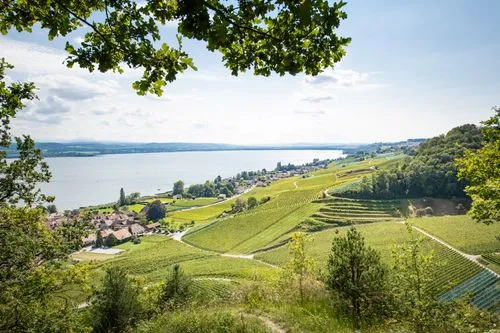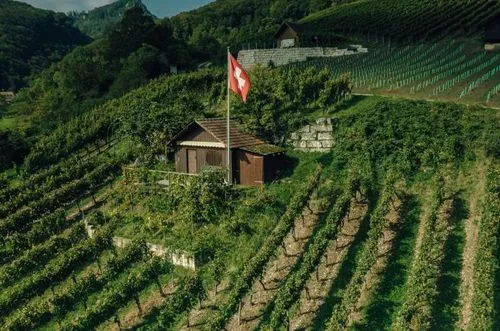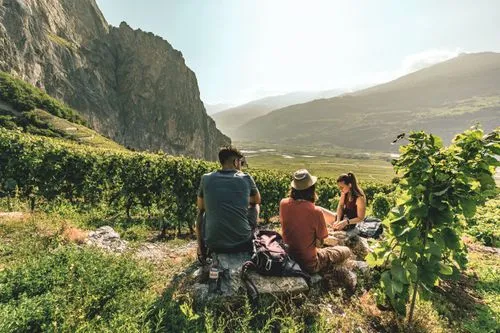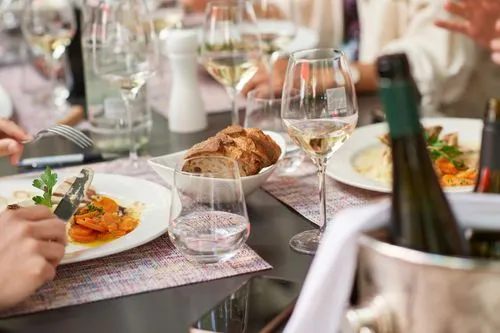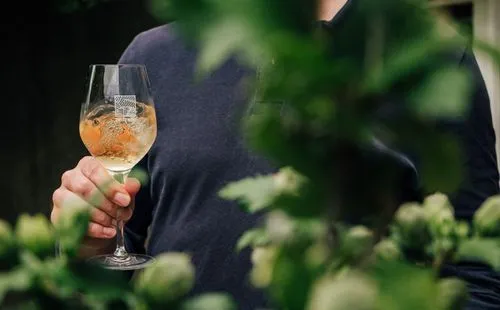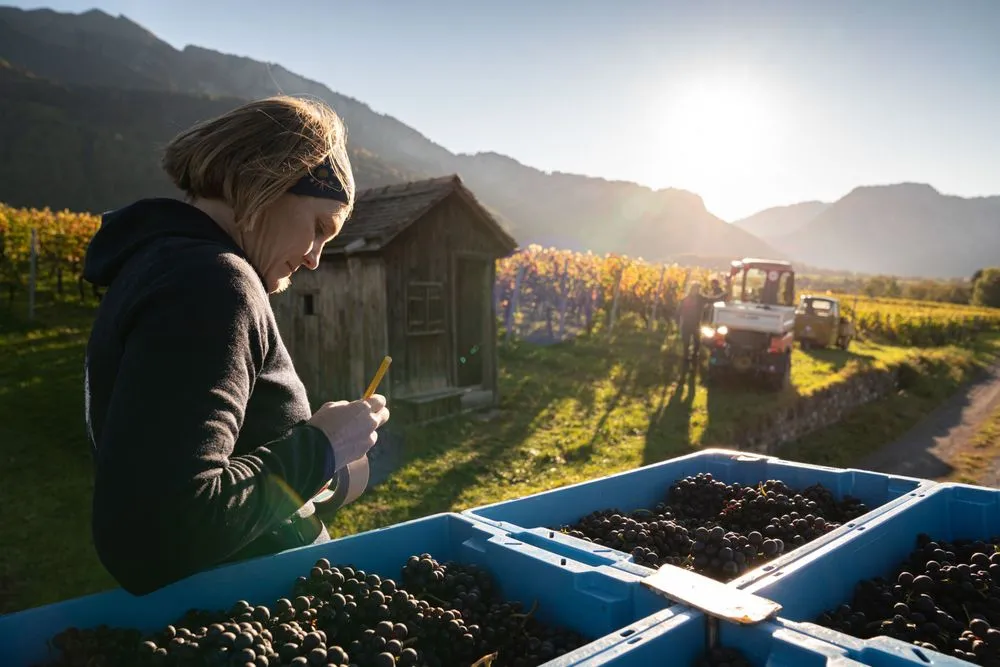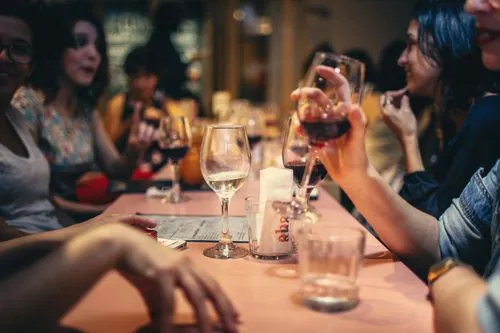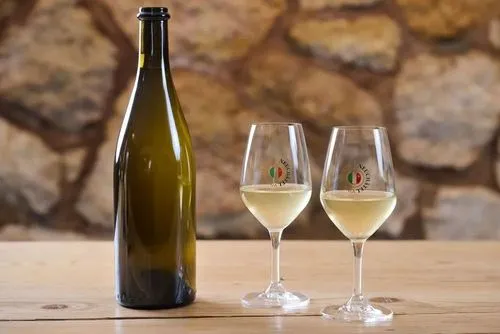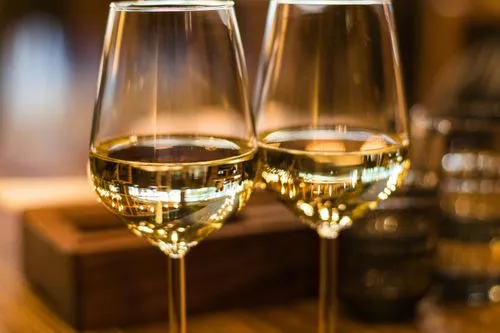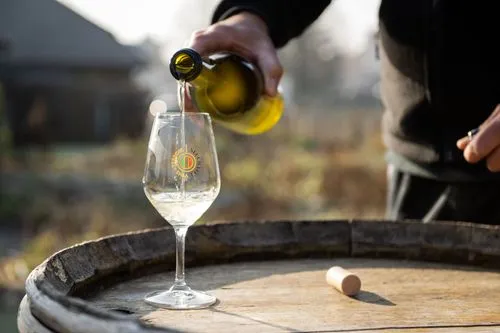She works in harmony with nature to produce her wine
Francisca Obrecht, what are the main differences between conventional and biodynamic viticulture?
As in organic viticulture, we avoid chemical and synthetic additives. In addition, biodynamic viticulture is based on anthroposophy. We don't focus on problems and how to combat them. Instead, we assume that healthy soil is a prerequisite for vital and robust plants.
What methods do you use to promote healthy soil?
One important ritual is the horn manure preparation. In autumn, we put manure in cow horns, which we then bury. During the winter, the manure is converted into compost, which we apply in the spring, highly diluted, in the vines. This awakens the soil organisms and activates the nutrients for the plants. The ritual also energises us winemakers: when we walk through the vines, we can see from the density of the grass where the soil is fat or lean. This tells us where we need to apply compost as fertiliser.
As a Demeter winemaker, do you feel a particularly close connection to nature?
Biodynamic production strengthens your connection with nature. Ultimately, we can only work preventively when protecting plants – once the damage is done, it's done. That's why we must rely on observing the vines.
Do people sometimes have misconceptions about how you work?
The biggest prejudice is that we don't spray our vines at all. This romanticised view is sometimes annoying. Producing is a balancing act: we have to accept certain damages, but we don't want to take all the risks. Occasionally, it makes sense to use copper as a preventive measure against fungal infection. Of course, it would be ideal if we could avoid it. But in an emergency, it's the best remedy we have.
Why did you decide to convert in 2013?
My husband and I took over the business in 2006 as the fifth generation. Our predecessors always did their best to ensure that the business remained attractive for the next generation. Our contribution is to invest in sustainability. Biodynamics, with its rituals and observance of the lunar calendar, encourages us to look at what we have always done from a different perspective.
‘Just’ producing organically wasn't enough for you?
Biodynamics adds another dimension. For example, the moon sets a rhythm for our work. Depending on whether it is waxing or waning, different tasks are required in the vineyards and in the cellar. We see it as an opportunity that we don't always have to do everything at the same time.
What else do you think speaks in favour of this method of production?
Our work results in a very high-quality and individual product. Accordingly, we are not exposed to the competition for mass-produced goods. We get a better price for our wine and it is appreciated differently.
Can you tell from a wine whether it was produced biodynamically?
I think so, yes. If you avoid synthetic fertilisers, the plant absorbs less water. This results in smaller fruits with a thicker skin. Because they are less watery, this results in a completely different tannin structure and aroma density. At the same time, biodynamic viticulture results in greater diversity in quality. Our wines differ from vintage to vintage. We need customers who find it exciting that the wine does not always taste the same.
Doesn't that put you under pressure?
The trick is to harvest grapes of different quality at different times and to process them accordingly. If a year is not so good, I cannot produce a huge amount of red wine. But the grapes might still be sensational for rosé or sparkling wine. That's what makes it so exciting for me. Our method of production ensures a more respectful treatment of the vines. But of course, you have to be open and willing to take the risks. It's not always easy to bear.
But you still can't imagine going back to conventional viticulture?
No. I don't think that pseudo-security that conventional viticulture offers is worth that much. Besides, in years with major losses, how you produce is not the deciding factor. Natural phenomena such as spring frost or hail affect all winegrowers equally. In the end, the opportunities offered by biodynamic viticulture clearly outweigh the risks for me. It encourages us to be creative and to break away from what we consider to be standard.
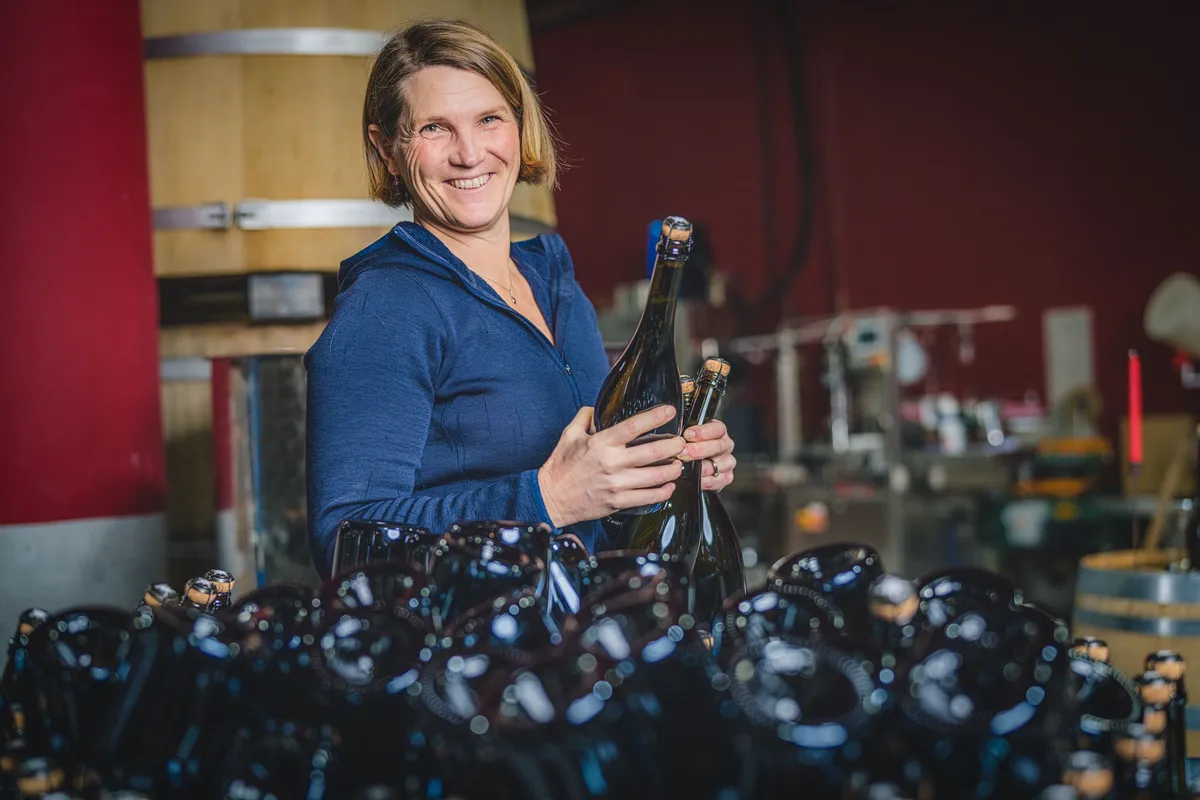
Sustainable enjoyment with Swiss wine
The approximately 2,500 winemakers in Switzerland do a lot of the work in the vineyard by hand. Sometimes this is because the plots are simply too steep for machines to work on them. However, the manual labour is often also connected to the philosophy of the vineyards – namely, to work as harmoniously as possible with nature. Many winemakers produce their wines according to the guidelines of integrated production (IP). An increasing number also produce organic, Demeter or Vinatura-certified wines.
You can find out more about sustainability in viticulture in Switzerland here.
Pretium
Related Articles
All the news about Swiss wines and exclusive reports.
To visit our site, you must be of legal drinking age in your country of residence.
